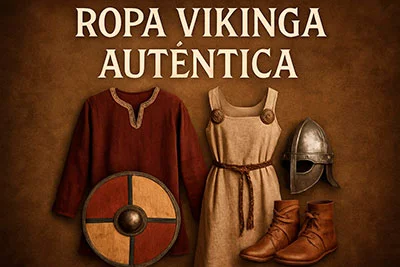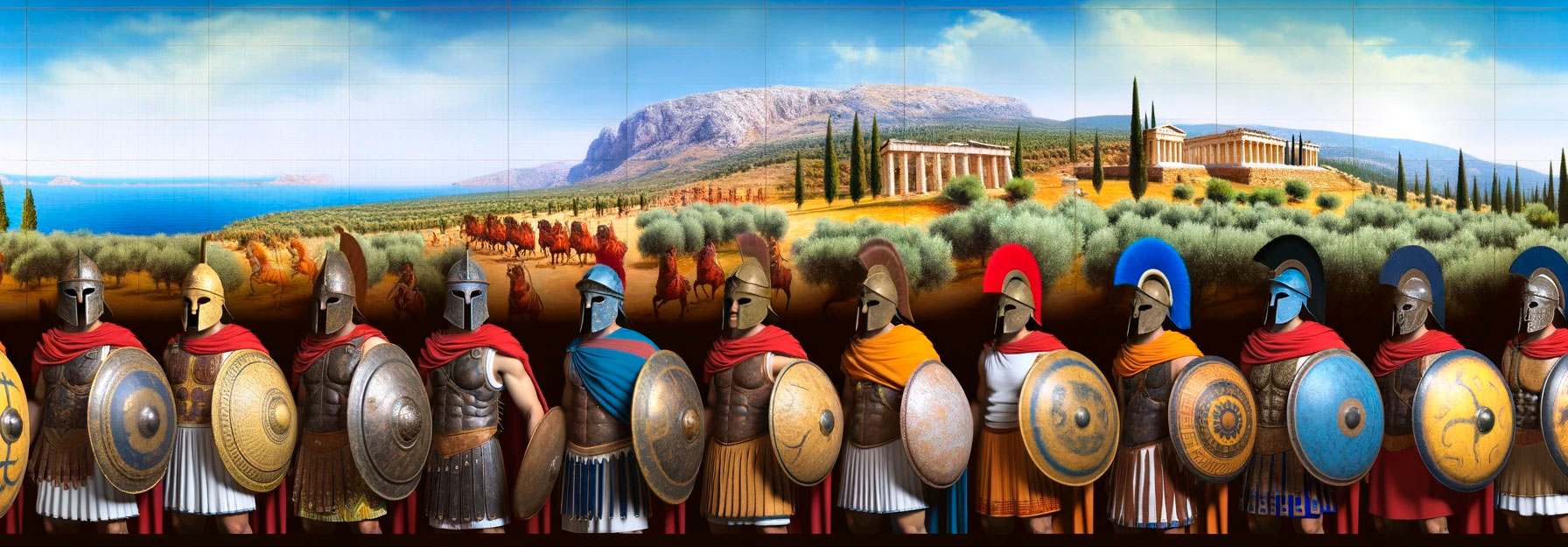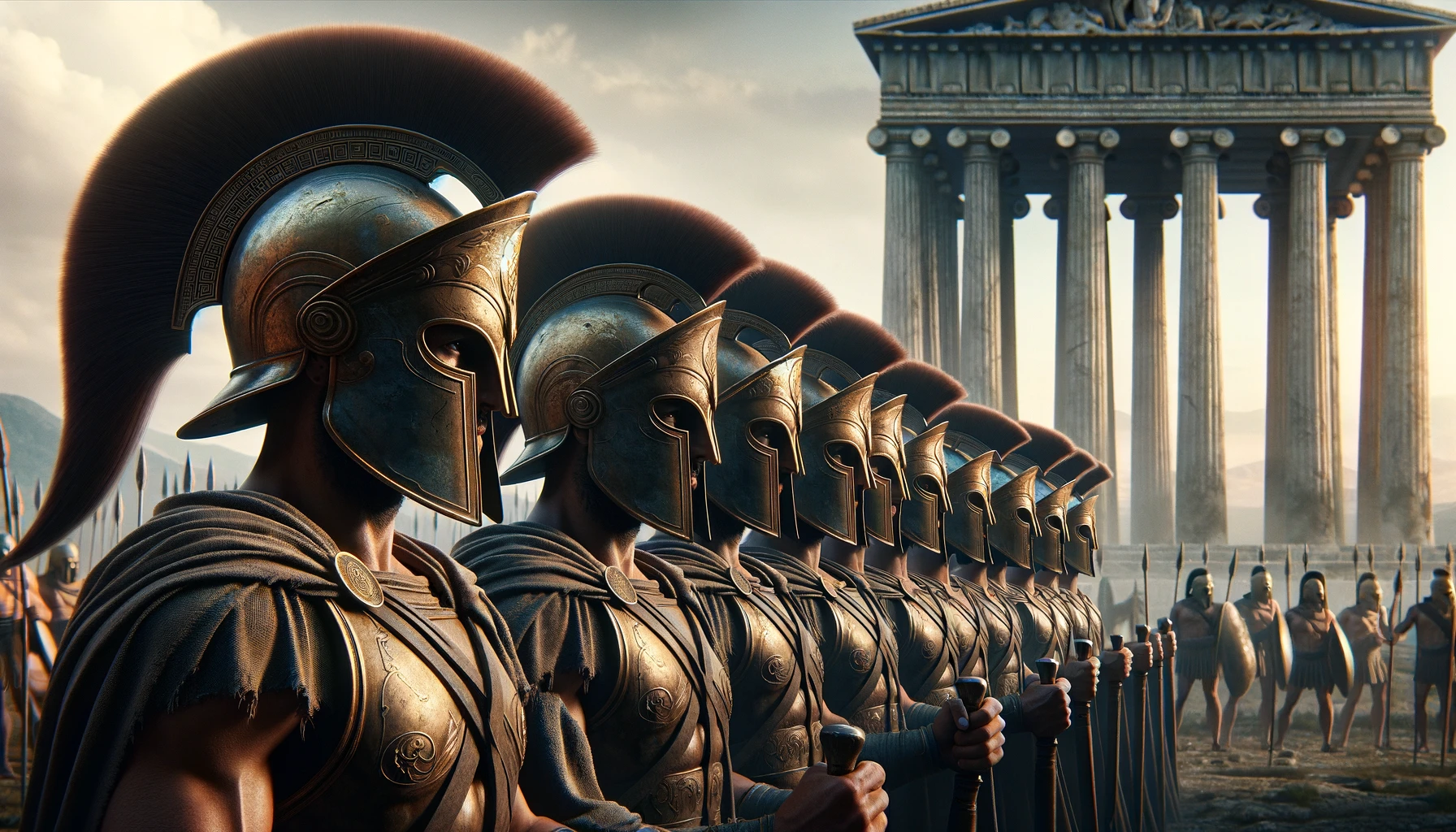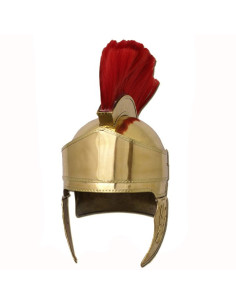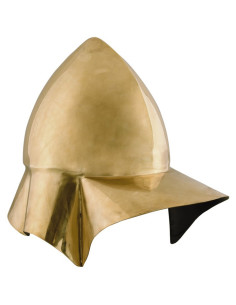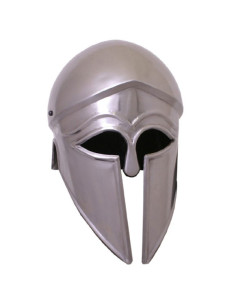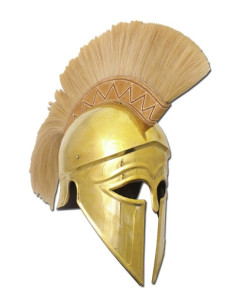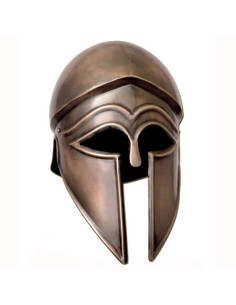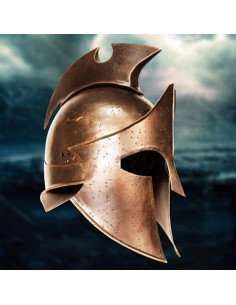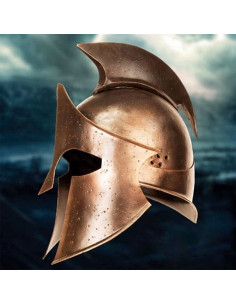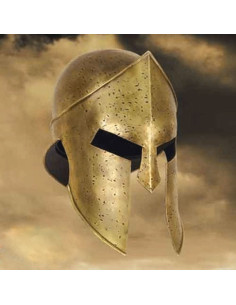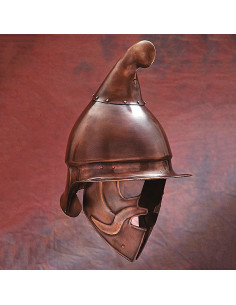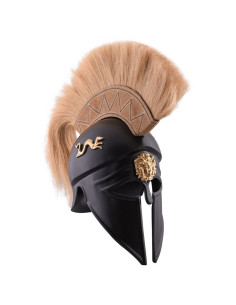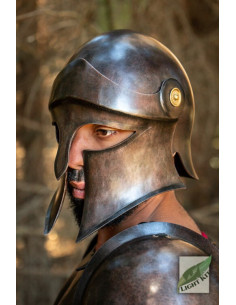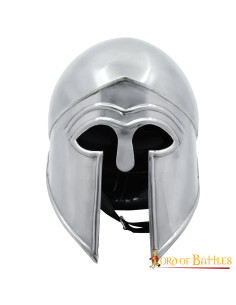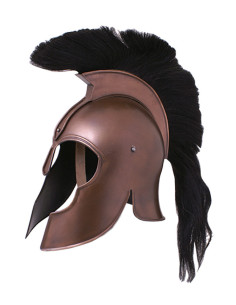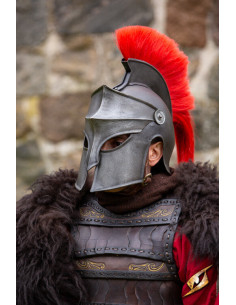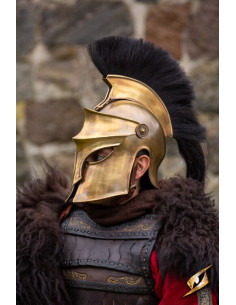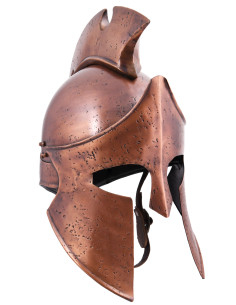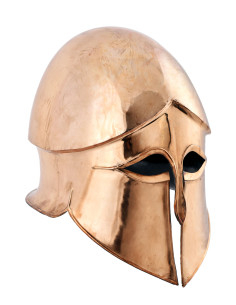Greek helmets
The Story Behind Greek Helmets
Greek helmets represent a fundamental part of the military history of ancient Greece. These items not only served as protection but were also symbols of status and pride. Each helmet, from the Corinthian to the Spartan, reflects not only the style of the era but also the war techniques used by each city-state.
In ancient Greece, war was an integral part of life, and each helmet was designed with both function and aesthetics in mind. For example, many helmets featured crests and plumes that added a touch of majesty, helping to intimidate the enemy on the battlefield. Undoubtedly, the design of a Greek helmet goes beyond its practical use, delving into the art of warfare of the time.
Diversity of Designs and Styles
The variety of Greek helmets is astonishing. From the iconic Corinthian helmet, known for its distinctive shape, to the Spartan helmet used by the most feared warriors in history, each design has its own story. This not only reflects the art of metallurgy of the time but also the cultural diversity among the different regions of Greece.
The details on the helmets, such as bronze finishes or plumes of various colors, were representations of local taste and tradition. As warfare evolved and different tactics were adopted, the designs of the helmets also changed, adapting to the needs of the warriors and their specific environments on the battlefield.
The Recreation of Greek Helmets Today
Today, Greek helmets have been revived in the world of cinema, historical reenactment, and collecting. History enthusiasts seek not only to appreciate ancient helmets but also to obtain replicas that are true to the originals. These pieces of art attract not only historians but also those looking to adorn their homes or participate in historical events.
Attention to detail in the manufacturing of Greek helmet replicas is essential. Modern artisans use traditional techniques to ensure that every element, from the material to the finish, is authentic and has a touch of the history they represent. This has led to a resurgence of interest in Greek military history and its impressive armors.
Materials Used in Manufacturing
The manufacturing of Greek helmets can vary according to the period and style. The earliest helmets were made of bronze, a material that was abundant in Greece. Over time, other materials such as iron and modern composites began to be used, especially for current replicas, offering a combination of lightness and strength.
Although the original helmets were functional in battle, today many reproductions are made with different types of metal and plastics to ensure durability and safety, especially in reenactment contexts. The use of leather liners is also common to ensure comfort during use, allowing enthusiasts to enjoy their appearance and the history behind them.
Why Choose a Greek Helmet?
Choosing a Greek helmet, whether for collection, recreation, or decoration, is a way to honor the rich military history of ancient Greece. These helmets are not just pieces of armor; they are artifacts that tell stories of valor, strategy, and culture. By acquiring one, you are not only getting an object but also a connection to the past.
Moreover, these helmets are perfect for cosplay events or historical fairs, where detail and authenticity are paramount. By opting for a quality Greek helmet, you are choosing not only a visual representation but also a conversation piece that attracts other history and military culture enthusiasts.
What Are the Most Prominent Greek Helmets?
The most prominent Greek helmets are those that have a strong historical representation, such as the Corinthian helmet and the Spartan helmet. Both have unique characteristics that make them iconic. The Corinthian helmet is known for its closed design and facial protection, while the Spartan combines functionality with a distinctive style that symbolizes valor in battle.
How to Care for Greek Helmets?Caring for a Greek helmet, especially if it is a reproduction or a collectible item, requires special attention. It is advisable to clean them with a soft, dry cloth to avoid dust buildup. It is also important to store them in a cool, dry place to prevent oxidation. If it is made of metal, specific products can be applied to preserve the finish.
Are Greek Helmets Comfortable to Wear?The comfort of Greek helmets varies depending on the material and design. Modern reproductions often include leather or fabric liners that provide greater comfort during use. However, ancient helmets, designed for battle, may not be as comfortable as desired, especially without adequate lining. It is important to consider these aspects if you plan to wear them for extended events.
Where Can Greek Helmets Be Purchased?Greek helmets can be found in various specialty stores focused on history and historical reenactment, as well as in online shops. Our online store offers a wide variety of models, guaranteeing quality and authenticity in each piece available. Shopping online allows you to explore a broad catalog and choose the Greek helmet that best fits your needs.
What Style of Greek Helmet is the Most Popular?The most popular style of Greek helmet tends to be the Corinthian helmet. This design has been represented in numerous films and works of art, becoming an iconic symbol of ancient Greece. However, Spartan helmets also have a strong representation due to their association with brave warriors and the famous Battle of Thermopylae. The choice of style depends on personal taste and the context in which it will be used.
Are Greek Helmets Only Decorative?Not necessarily. Although many current Greek helmets are made as decorative pieces or collectibles, there are also versions that are functional and suitable for use in historical reenactment events and cosplays. The key is to choose the right helmet according to the purpose it will serve, ensuring it meets the expectations of quality and authenticity.
What Historical Periods Are Most Represented by Greek Helmets?The most represented Greek helmets typically date from the classical period, which spans from the 5th century BC to the Persian Wars. Styles such as the Corinthian and Spartan are better known due to their prominence in significant historical events like the Battles of Marathon and Salamis. These periods are filled with heroes and stories that make the helmets even more significant today.
Explore our exclusive collection of Greek helmets! From authentic replicas to modern manufacturing methods, each piece is unique. Visit our online store and choose the helmet that best reflects your passion for history. Don’t miss out!
Noticias Destacadas
-
Historia de la espada bastarda: El arma versátil que cambió la caballería
⚔️ MundoEspadas ⚔️ access_time 25/01/2026 09:26
-
Espada ropera: historia, técnica y legado de la espada civil del Renacimiento
⚔️ MundoEspadas ⚔️ access_time 25/01/2026 09:10
-
El misterio del acero de las espadas Vikingas Ulfberht: Tecnología de vanguardia
⚔️ MundoEspadas ⚔️ access_time 21/01/2026 09:35
-
Historia y leyendas detrás de la espada de la sabiduría de Salomón: Un legado de justicia divina
⚔️ MundoEspadas ⚔️ access_time 18/01/2026 17:28

